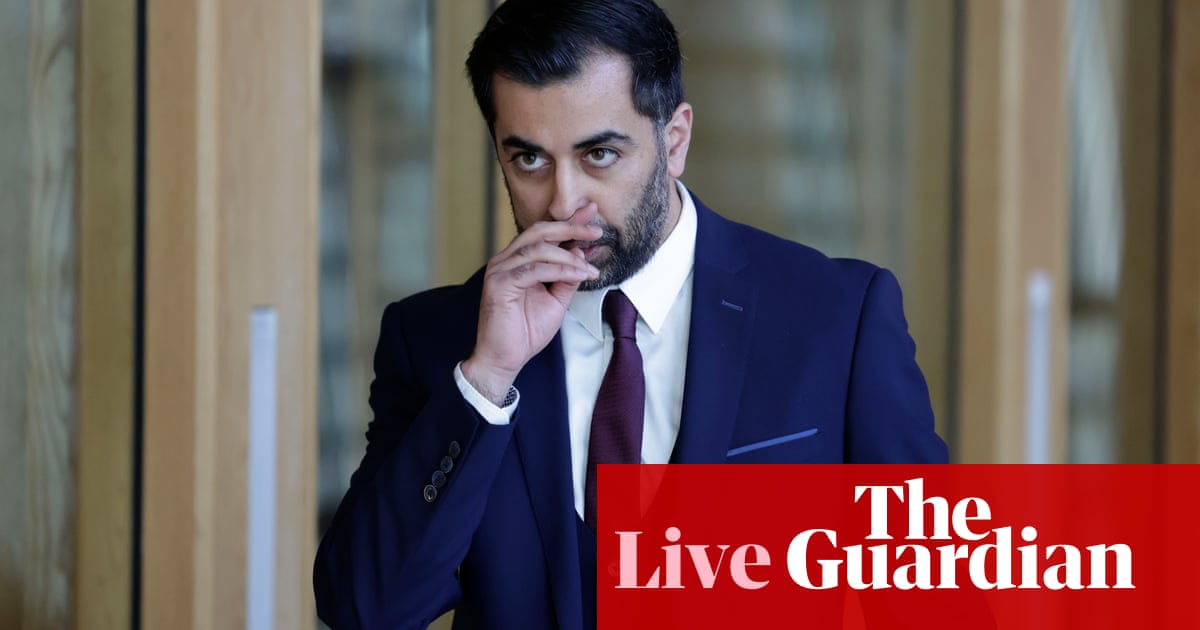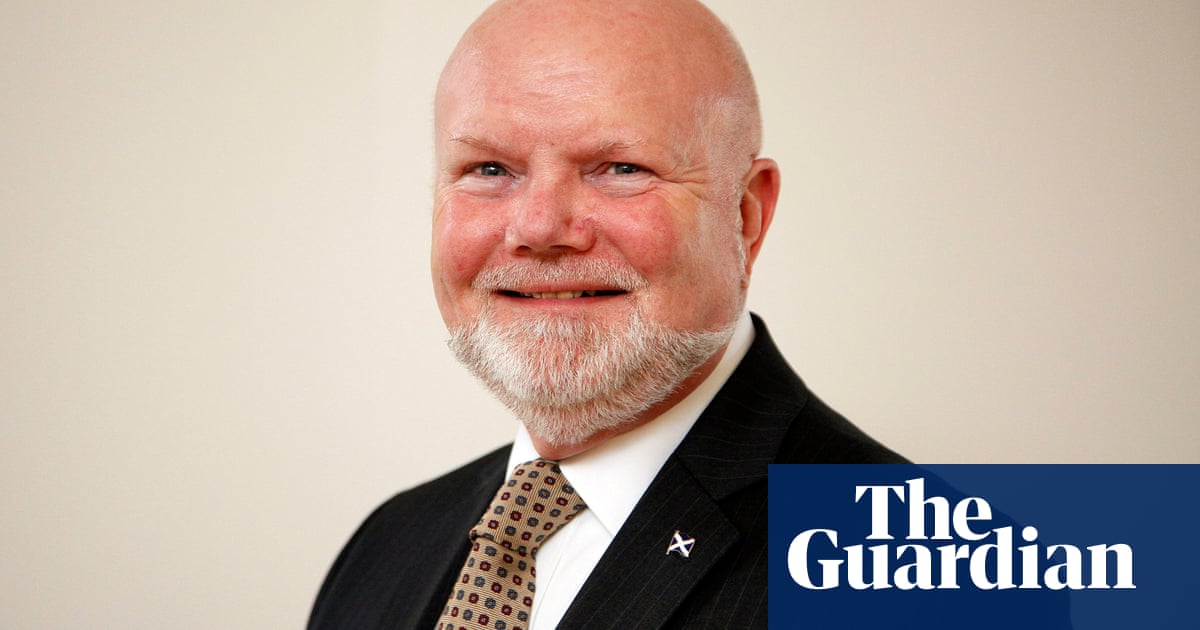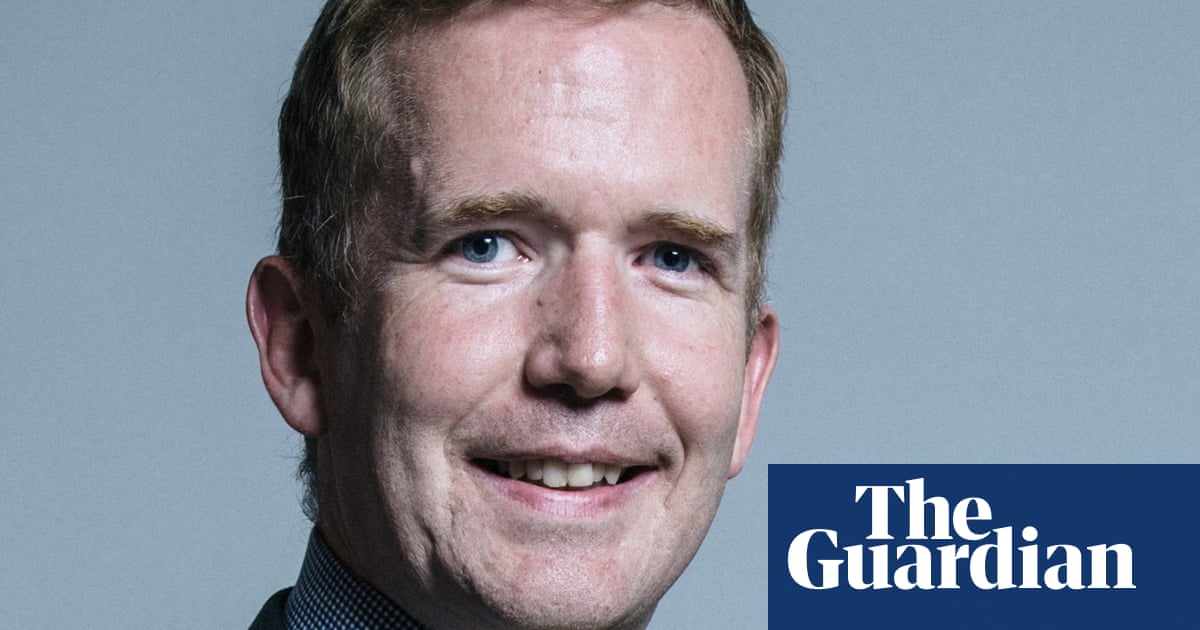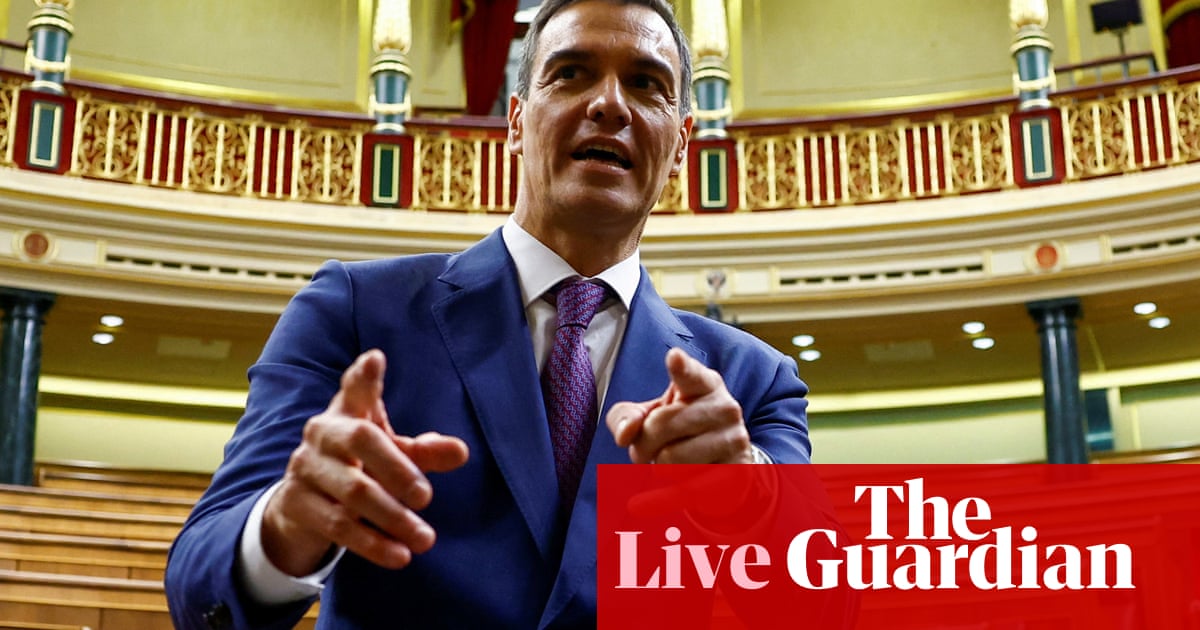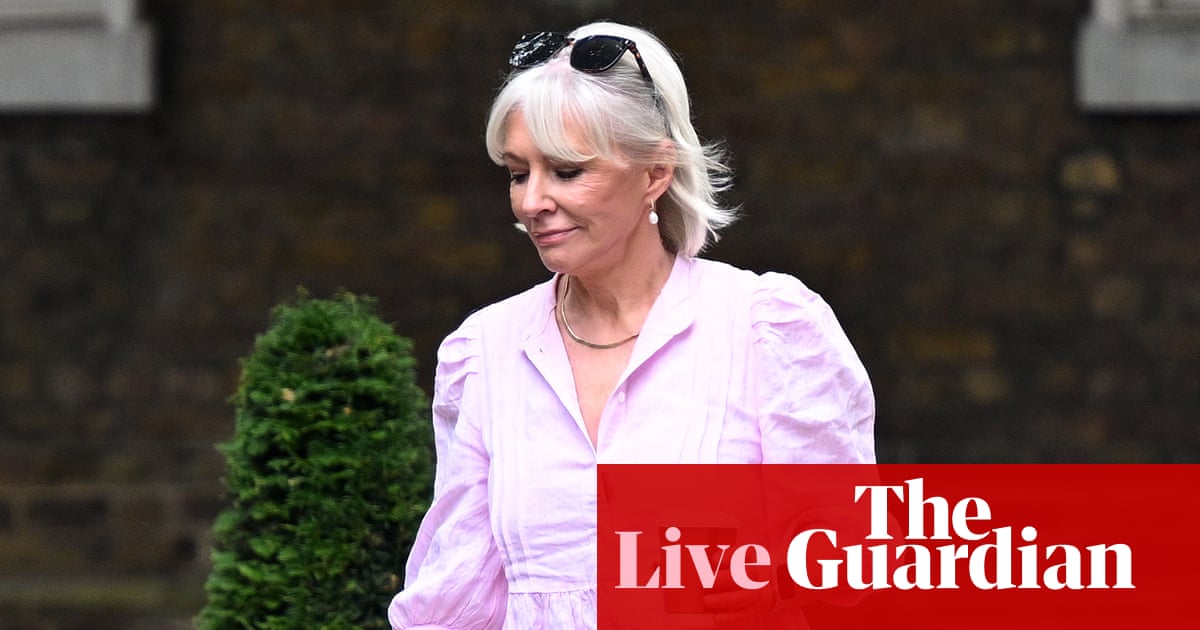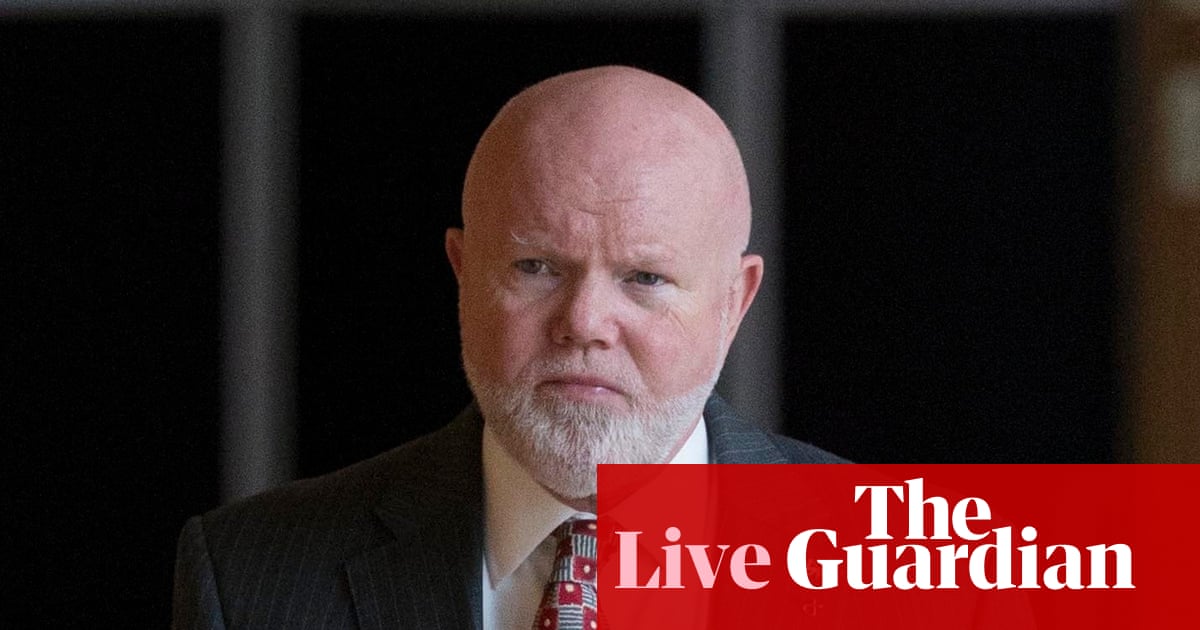
Colin Beattie says he"s stepping back from role as SNP treasurer following his arrest yesterday
Colin Beattie has announced he will step back from his role as the SNP’s treasurer following his arrest by police yesterday. In a statement he said:
This afternoon I informed the party leader that I will be stepping back from my role as SNP national treasurer with immediate effect.
I have also informed the SNP chief whip at Holyrood that I will be stepping back from my role on the public audit committee until the police investigation has concluded.
On a personal level, this decision has not been easy, but it is the right decision to avoid further distraction to the important work being led by Humza Yousaf to improve the SNP’s governance and transparency.
I will continue to co-operate fully with Police Scotland’s inquiries and it would be inappropriate for me to comment any further on a live case.
After being questioned by police yesterday, Beattie was released without charge “pending further investigation”.
Early evening summary
Keir Starmer has used prime minister’s questions to repeat Labour’s attacks on the government’s record over crime, saying that Rishi Sunak had “lost control of the court service” and allowed offenders to go free.
Rishi Sunak has declared his wife’s shareholding in a childcare company that could benefit from a new government policy, four years after she invested in it, a much-delayed new register of ministers’ interests has shown.
Colin Beattie has stepped down from his post as SNP treasurer after his arrest on Tuesday (see 5.08pm).
Richard Sharp’s future as chair of the BBC is in doubt as he awaits the publication of a “very uncomfortable” report on how he was recommended for the job by the former prime minister Boris Johnson.
Jim Allister, the leader of Traditional Unionist Voice, the hardline unionist party which has been winning votes from the DUP, has posted this on Twitter in response to Rishi Sunak’s speech. He makes it clear that he is opposed to the resumption of power-sharing because he does not want to see Sinn Féin’s Michelle O’Neill as first minister.
DUP leader says Heaton-Harris"s speech urging him to resume power-sharing "entirely counterproductive"
Sir Jeffrey Donaldson has restated his opposition to the Windsor framework. The European Commission president, Ursula von der Leyen, had described it as a “gateway to a bright future” in her speech to the conference in Belfast this afternoon, but Donaldson told journalists:
It’s a pity that the gateway has bars and locks on it and checks, and all kinds of things that we need to see removed, if Northern Ireland is going to have unfettered access to our own internal market.
That’s simply all we’re asking of our own government, to respect the integrity of its own internal market, to stand up for the union, to be the prime minister for all of the United Kingdom.
I think the prime minister will respond to that, I am hopeful that what we will hear from the prime minister is something more positive and forward looking, something that is more inclusive than what we heard yesterday from the secretary of state.
Donaldson also said Chris Heaton-Harris’s speech on Tuesday had been “entirely counterproductive”:
If Chris Heaton-Harris thinks that berating unionists on a public platform of this nature is going to find the solution that we need to get Stormont restored, then I think someone should take him aside and give him a lesson in peacebuilding and in quiet diplomacy.
Because that’s the way we’re going to resolve these issues, not shouting from platforms at each other. Put away the megaphone and let’s sit down with the government and unionists, and other parties for that matter too, and let’s sort out these problems.
That’s where the solution will be found, it will be found in those quiet conversations that enable us to get to the solution we need to see Stormont restored, that’s what we want.
Rampant sexism and sexual harassment "endemic" in music industry, MPs told
Rampant sexism and sexual harassment is endemic in the music industry, and is getting worse, a group of MPs have been told.
Deborah Annetts, the chief executive of the Independent Society of Musicians (ISM), said women were still being told that they should sleep with influential people to get ahead in their careers, and fear reprisals if they speak out about abuse.
Annetts told the Commons women and equalities committee, which is carrying out an inquiry into misogyny in music, that the precarious nature of work in the music industry left women exposed to abuse. She said:
It is still the case that women are told that if you want to get ahead, you have to sleep with the person who has influence over your career. And because by and large they are freelancers, they have very few rights and if they say anything, they will not work again. And that is where the power imbalance lies.
She said the ISM had carried out research published last year, based on 660 responses from those in the UK music sector, which found 58% had suffered sexual harassment and 88% had not reported the discrimination they had faced.
She also said that in a similar survey carried out in 2018, 47% of respondents said they experienced some form of discrimination while working in the music sector, which had increased to 66% last year, while non-reporting had increased:
People are now more scared to report. I think that may be a function of the pandemic, that work is even more scarce. And therefore you’re even more worried about how you can keep a roof over your head.
She said many senior women who had lost their jobs were being gagged by non-disclosure agreements which continued to cover up abuse.
You’ve got the freelancers who can’t speak out because of fear of reprisal. And you’ve got senior women who can’t speak out because of what may happen to them and that is the sector that we’re working in. I was shocked when I came into the sector 15 years ago I did not expect it to be like this. But it’s something I have learned is endemic.
Asked if she had seen an improvement in 15 years, she responded: “I think it’s getting worse.”
She called for a reintroduction of a legal requirement for employers to protect their workers from abuse by third parties such as clients or customers, which the government scrapped in 2013. The Lib Dem MP Wera Hobhouse’s private member’s bill, which would reinstate the requirement, passed second reading in the House of Lords in March.
Responding to a scandal in which no women were nominated for the newly gender-neutral category of Best Artist at the Brit Awards this year, YolanDa Brown, the chair of the British Phonographic Industry, said the change had “uncovered that there is a deeper seated issue to get more women into our industry”.
Humza Yousaf thanks Beattie, saying standing down was in best interests of SNP
Humza Yousaf, the SNP leader and Scottish first minister, has thanked Colin Beattie, saying that by standing aside he was acting in the best interest of the party.
He also says a new SNP treasurer will be appointed “as soon as possible”.
(Beattie said in his statement [see 5.08pm] that he was stepping back, not that he was resigning, but Yousaf implies he does not expect him to come back.)
Colin Beattie says he"s stepping back from role as SNP treasurer following his arrest yesterday
Colin Beattie has announced he will step back from his role as the SNP’s treasurer following his arrest by police yesterday. In a statement he said:
This afternoon I informed the party leader that I will be stepping back from my role as SNP national treasurer with immediate effect.
I have also informed the SNP chief whip at Holyrood that I will be stepping back from my role on the public audit committee until the police investigation has concluded.
On a personal level, this decision has not been easy, but it is the right decision to avoid further distraction to the important work being led by Humza Yousaf to improve the SNP’s governance and transparency.
I will continue to co-operate fully with Police Scotland’s inquiries and it would be inappropriate for me to comment any further on a live case.
After being questioned by police yesterday, Beattie was released without charge “pending further investigation”.
Sunak tells DUP restoring power-sharing will strengthen unionism
Rishi Sunak’s speech to the conference marking the 25th anniversary of the Good Friday agreement started off as an extensive thank you to those involved in reach the deal in 1998 (when Sunak was still a teenager). But after that it got a bit more interesting. Here are the lines.
Sunak told the DUP that restoring power-sharing would strengthening unionism. Echoing the argument used by Chris Heaton-Harris, the Northern Ireland secretary, in his speech yesterday, he said:
I urge you to work with us to get Stormont up and running again.
That’s the right thing to do on its own terms.
And I’m convinced that it’s also the right thing to do for our union.
I am a proud unionist.
We believe passionately that Northern Ireland is stronger within the UK – and the UK is stronger with Northern Ireland within it.
But we must also build support beyond those of us who already identify as unionists.
To do that, we have to show that devolved government within the United Kingdom works for Northern Ireland.
The fact that the institutions have been down for nine of the last 25 years should be a source of profound concern.
Over the long term that will not bolster the cause of unionism – I believe that deeply.
So we need to get the institutions up and running – and keep them up and running.
Sunak did not mention the DUP, but it was obvious who he was addressing. Yesterday, in response to Heaton-Harris’s speech, the DUP said the Northern Ireland secretary sounded “clueless”.
Sunak said he hoped that over the next 25 years power-sharing would continue without further interruptions.
He said, just as Tony Blair did not give up on Northern Ireland after the Good Friday agreement was signed, he would not “walk away’” after negotiating the Windsor framework.
He said he was committed to making Northern Ireland an economic success. He said:
This is my commitment to you:
I will use the full force of the UK government to help you make this one of the best places in the world to start and grow a business, create jobs, train and learn new skills, and attract investment.
He said the Good Friday agreement showed the value of moderation. He said:
Squalid acts are always justified with some false dream about what they will achieve.
But they have never worked – and they never will.
Instead, let us glorify moderation, romanticise respect and make heroes of those with the courage to reject absolutes, not kill for them.
Bill Clinton urges DUP to "get this show on the road" and resume power sharing
Yesterday Sir Jeffrey Donaldson, the leader of the DUP, insisted that his party would not listen to lectures from “the great and the good” who are urging them to resume power sharing. But that has not stopped them trying, at the Queen’s University Belfast conference, and the best example of that today came from Bill Clinton. Here are the highlights from the speech from the former US president.
Clinton told the DUP it was “time to get this show on the road”. Referring to the Windsor framework, the deal to revise the Northern Ireland protocol agreed recently by London and Brussels, he said:
Now that I think the biggest roadblock that Brexit posed for Northern Ireland’s political and economic future has been dramatically mitigated, it’s to figure out what the heck practically is at issue here – not rhetorically, not ideologically – practically at issue. What else needs to change to protect the day-to-day legitimate pursuit of making a living and to deal with it?
But this whole deal was never supposed to be an engine of obstruction. The agreement was never supposed to be used to make sure there could be no self-government.
We know what the votes were at the last election, we can add them up, the allocation of seats in the parliamentary body, and it is time to get this show on the road.
Clinton was referring to DUP claims that the Northern Ireland protocol undermines the Good Friday agreement.
He said he was confident that the public wanted power sharing restored. He explained:
Do you still have problems? Sure. We need more economic growth, we need less inequality, you have got some health issues you need to resolve and you’ve got to have functioning government to do all that.
I think that is what the British government wants, I think that is what the Irish government wants and I know it’s what the people outside want.
He said the challenge was less daunting than it was 25 years ago. He said:
I ask you not to be discouraged, this is human affairs, there are very few permanent victories or defeats in human affairs. All these old ugly problems are always rearing their heads. You just have to suck it up and beat it back and deal with it.
You’ll be fine if you remember what got you here. You are no longer walking on air against your better judgment.
If Seamus Heaney were still alive and he were here he would say we walked on air against our better judgment, now you have a hard floor to walk on, for God’s sake get up and walk.
He mocked those opposed to his presence in Belfast this week for the conference. He said:
Guys like me need to get out of town. I mean, they they’re already doing what they so often do, trying to spew resentment against us for showing up in the first place. Which I think is funny because I think showing up in the first place helped you get you to where we are now.
This seemed to be aimed at more extreme unionists opposed to Clinton being in Belfast, not Donaldson and the DUP, although it was hard to tell. Clinton also joked, in another part of his speech, about how long he had been in the city. He said:
I have been here so long that I am reliably informed that I will owe taxes if I am not gone in 48 hours.
He said the Windsor framework seemed the best deal available. He said:
This Windsor agreement – seems to me anyway, as an outsider who cares very much – is about the best deal you could get to split the baby.
It has the benefits of access to the European markets, and the necessity of access to the UK market, to be reconciled in a way that will permit the best of both worlds – something that, as far as I can tell, nobody else with this kind of access to the EU has in their domestic market. I don’t think there’s anything quite like.
So do I hope it will be enough or that it can be tweaked a little bit? I certainly do.
Because no matter how good any deal is, how much endurance there is, what really matters is how long it has a hold of people’s imagination and trust.
He said that “some things are more important than the next election”. He was talking about the past, although the remark also seemed relevant to the DUP, who are thought to be deferring a decision about restoring power sharing until after the local elections next month.
He claimed the idea that those involved in the Good Friday agreement process were better than people today as “the biggest load of bull I ever heard in my life”. He went on:
Those of us who were there then should thank God every day that we were lucky enough to be where we were to have an opportunity when time and circumstances permitted to play a small role in a big lift in the human condition.
I try to live in the present and for the future and so should we all.
At the conference in Belfast to mark the 25th anniversary of the Good Friday agreement, Rishi Sunak has just started delivering his speech. He has got a tough slot, because Bill Clinton was on a few minutes ago, and his speech was terrific. I will post highlights shortly.
This is from Anton Spisak, the Brexit specialist at the Tony Blair Institute.
UK and EU "need each other more than ever", European Council president Charles Michel says
The UK and the EU “need each other more than ever”, Charles Michel, president of the European Council, told the conference at Queen’s University Belfast to mark the 25th anniversary of the Good Friday agreement. He explained:
The Belfast agreement also represents the product and the high point of another era, an era when the values of liberal democracies were pre-eminent in the world.
In the past 25 years, the world has changed dramatically. The September 11 attacks, the wars in Iraq and Afghanistan, global economic crisis, the climate emergency, Covid-19, and now Russia’s war against Ukraine, where we see the tragic consequences of war.
In these troubling times, two great allies, like the United Kingdom and the European Union, we need each other more than ever, we stand today together. We stand together to tackle common challenges like climate change, we stand together to uphold human dignity and human rights.
In this increasingly dangerous world, Northern Ireland and the Belfast/Good Friday agreement are a powerful symbol of what our shared values can achieve.
Let’s continue to build on this unstoppable belief in the potential of peace. For more freedom, more prosperity, more democracy for the people of Northern Ireland, and for all people across the world.




